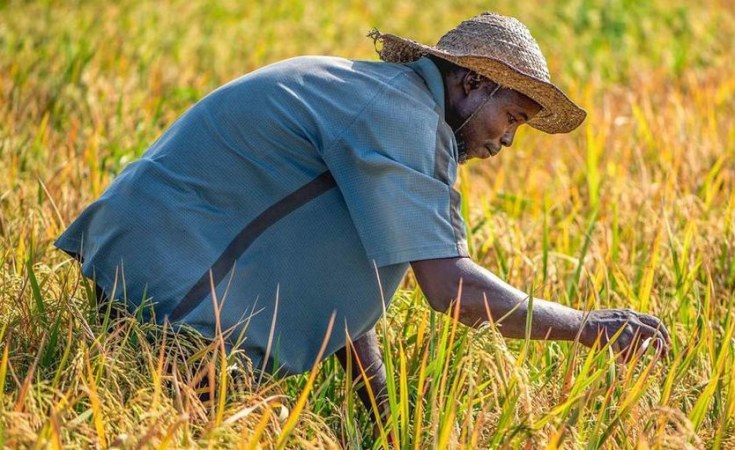Washington — In partnership with the African Union, the United Nations and others, the U.S. State Department has kicked off an initiative to help African farmers and governments prepare for and adapt to food security challenges caused by climate change.
Dr. Cary Fowler, U.S. special envoy for global food security, launched the new program Wednesday at the Center for Strategic and International Studies in Washington.
"Crops adapted to climate, pests, diseases and the needs of the marketplace are a prerequisite for food security," said Fowler. "Poor soils don't produce rich harvest."
Fowler, who recently visited Zambia and Malawi, warned there is an urgent need to develop crops that are prepared to withstand the effects of climate change and the agricultural productivity demands of Africa's growing population.
"At a time when Africa is experiencing weather extremes and population growth is increasing, we see a real opportunity promoting soil health and climate resistant crops in Africa," said Fowler. "By the end of the century, as you probably already know, Africa will be the world's most populated continent, yet already there are 300 million people who are food insecure on the continent."
Historically, most adaptation efforts have focused on a handful of crops such as maize, rice and wheat, said Fowler. That attention, he said, should include lesser known crops that are rich in vitamins and micronutrients.
"Other crops such as grains, such as sorghum, millet and teff, and almost all of the root and tuber crops, and the hundreds of indigenous African fruits and vegetables, have received much attention," he said. "Not surprisingly, their yields are low and their potential unrealized. For many of these crops there has never been a single scientifically trained plant breeder working on them in all of agriculture history."
This initiative is being launched in partnership with the African Union and the U.N. Food and Agriculture Organization. Ambassador Cindy McCain, U.S. permanent representative to the U.N. agencies in Rome, was at the launch. She said overlapping crises -- armed conflict, COVID-19 and climate change -- are straining global food systems. And that is affecting everyone, especially the more vulnerable around the globe.
"Throughout my travels as the U.S. ambassador to U.N. agencies in Rome, I've seen the effects of conflict, water scarcity and extreme weather conditions from Kenya to Madagascar, from Sri Lanka to Laos and more," she said. "As global leaders sought climate solutions in COP 27 in Egypt last year and at the Negev forum in UAE last month, it is clear that we must leverage science and technology and innovation in agriculture to feed a growing population, and it demands a united global effort."
Fowler said in addition to the FAO and AU, entities such as the Rockefeller Foundation, Columbia University and CGIAR, a global partnership that unites international organizations engaged in food security research, also are involved in this effort. He said this is like a potluck dinner where the State Department brings some resources and maybe a main dish, but other partners need to contribute to the effort in order to make it a success. Fowler noted the process outlined is part scientific and part consensus- and commitment-building.


